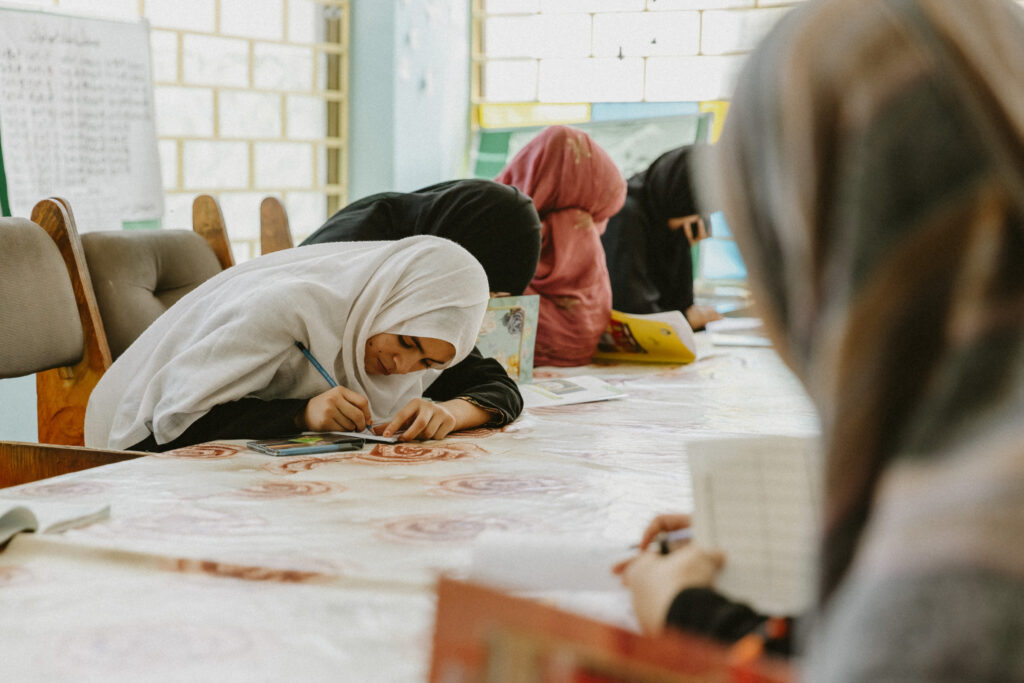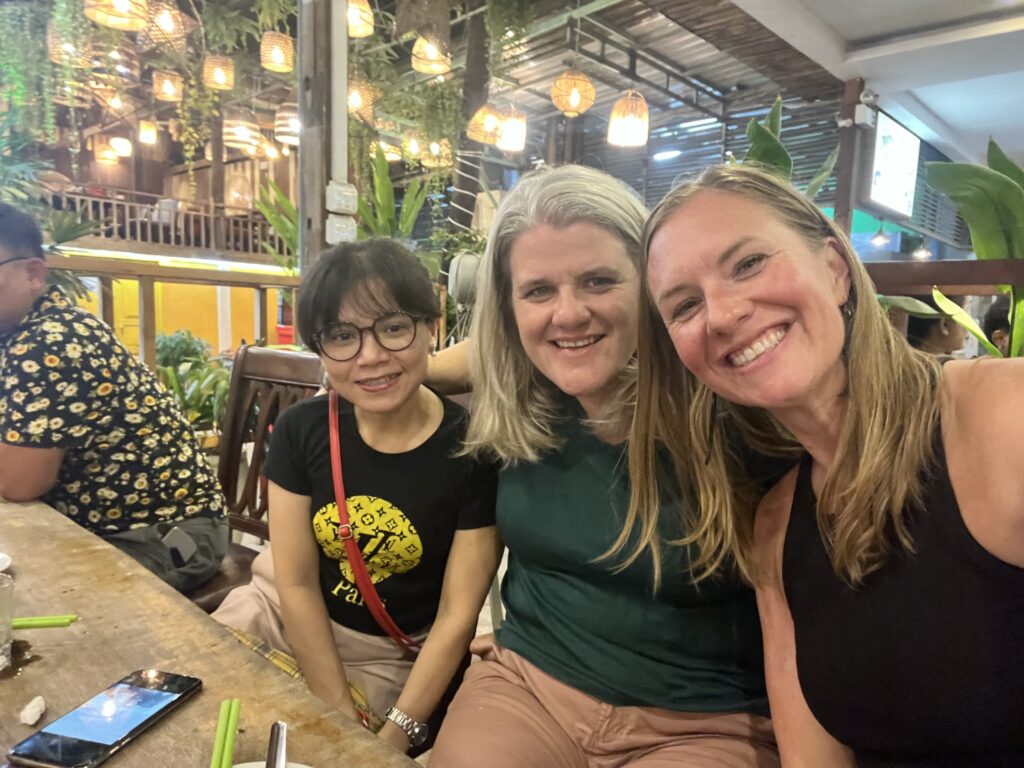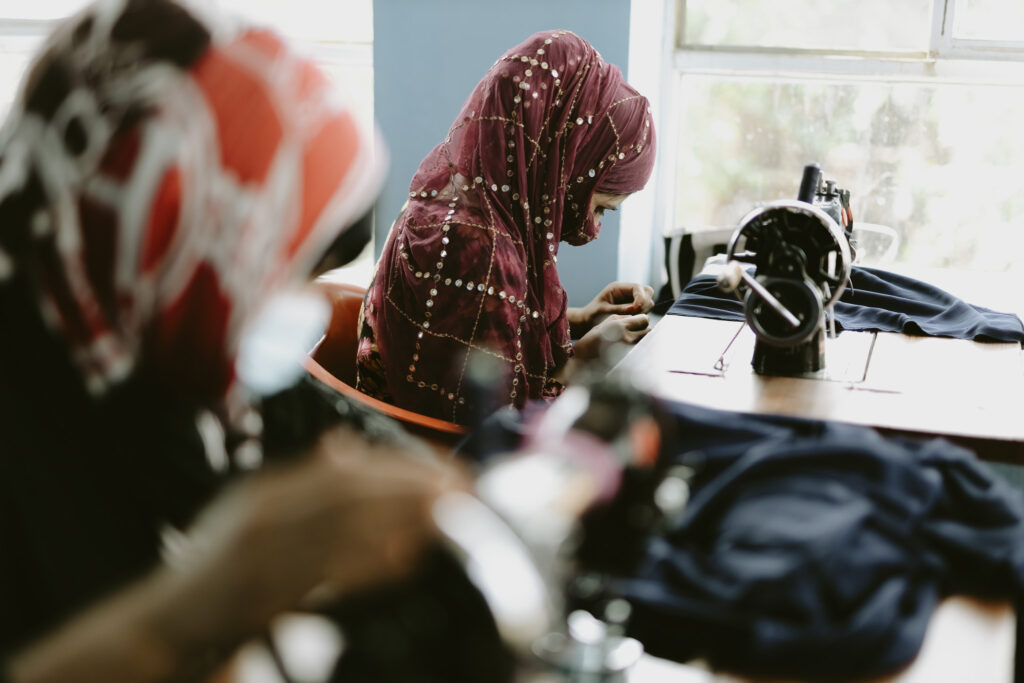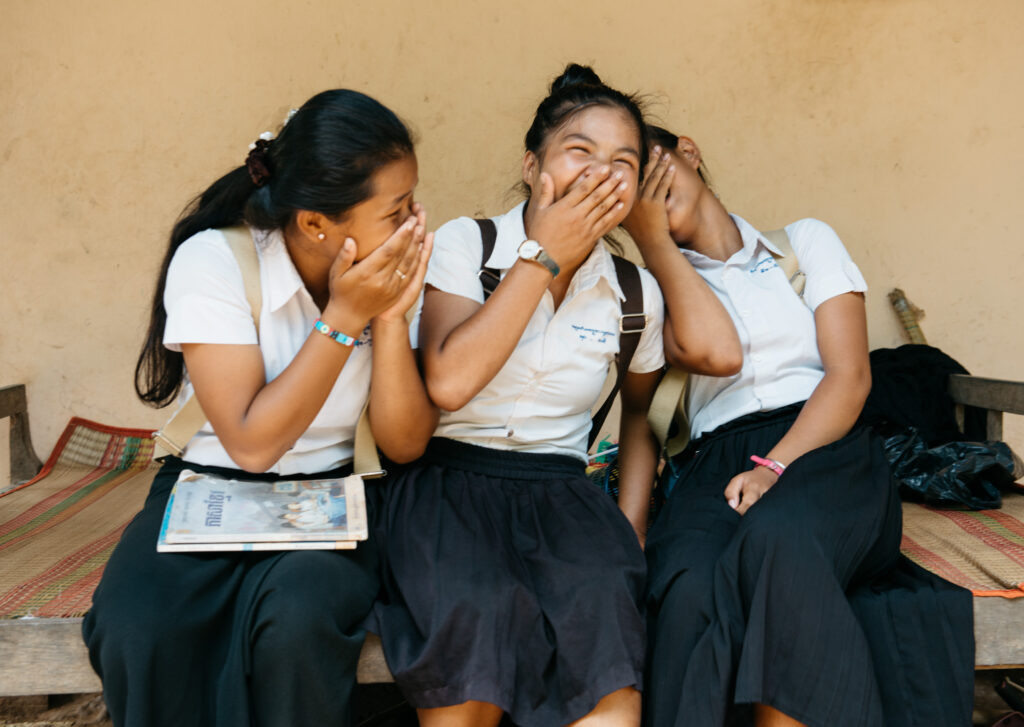
In this Human Rights Voices feature, The Global Humanitarian speaks with Amie from Hagar International, an international non-profit dedicated to restoring the lives of survivors of human trafficking and extreme abuse. Operating in seven Asia-Pacific countries, Hagar provides survivor care, prevention initiatives, and systems-strengthening programs to empower individuals and support their reintegration into the community. With a commitment to doing whatever it takes, for as long as it takes, Hagar works to restore life, dignity, and freedom for women and children who have endured severe human rights violations. In this interview, Amie shares insights into Hagar’s mission, the challenges survivors face, and the impact of their work.
Can you tell us about your organization and the human rights issues you focus on?
Human trafficking, modern slavery, and gender-based violence are some of the most egregious forms of human rights abuse in the world. They rob victims of dignity, freedom, and hope. Hagar’s raison d’être is to restore lives that have been torn apart by these very issues. We start with the individual and commit to walking the whole journey of restoration alongside them. After 30 years of frontline work in Asia, we have seen what happens when we put individuals at the centre of their recovery. What starts with one person, ripples out, affecting widespread change. Since 1994, Hagar has helped more than 30,000 survivors of human trafficking, slavery and abuse who are now leading lives of impact in their communities.
What inspired you to join Hagar International?
I was a young, idealistic 20-something when I moved to Cambodia in 2008 as a trailing spouse. My husband took an engineering contract in Phnom Penh, and I hoped to find work in communications or journalism once we settled into life in the country. That was how I first learned about Hagar. From the start, I was captivated by Hagar’s mission. Human trafficking, gender-based violence, and modern slavery are such overwhelming and dark issues, it can feel like there is no way to confront them. But Hagar’s patient and consistent work with individuals showed me a concrete way to engage human rights abuse. I was immediately inspired to join Hagar’s mission.

Why is this work so important in today’s world?
This work is critical in the world today because we are all touched by it – we just might now know it! Human trafficking, modern slavery and abuse are all on the rise, and no country or region of the world is immune. Exploitation is often hidden in plain sight yet is deeply enmeshed in every corner of our lives. Annually, G20 countries import hundreds of billions of dollars’ worth of slavery-tainted consumer goods and forced labor is deeply connected to demand from higher-income countries. The clothes we wear, the food we eat, and the electronics we rely on each day can all be tainted by modern slavery.
Educating ourselves on how our consumption affects people’s lives around the world is part of the solution. Investing in prevention work and survivor care is also critical. At Hagar, we believe that ending human trafficking starts with restoration. With time and professional care, traumatized lives can heal, livelihoods and wholeness can be restored, and resilient communities can deter perpetrators and minimize harm.
What begins with the individual moves from person to person, family to family, community to community, sparking lasting change.

Can you share a particularly impactful experience from your work? What made it significant, and how did it shape your perspective?
Just a few months ago I was on a field visit to our programs in Cambodia. There, I met Hagar’s newest staff member, a social worker and survivor leader named Naome. Years ago, Naome was a survivor in Hagar’s program. As a child, she had suffered life-threatening physical and sexual violence by a close family member. Thankfully, Naome was referred to Hagar before violence took her life. Over the next years of her youth, she healed and rebuilt her life with the support of Hagar’s programs.
Naome was so inspired by her Hagar social worker, that she chose to become a social worker herself. “My social worker worked with me and did not stop until I could stand by myself and see my value,” she says. “That is the reason I studied Sociology. I want to help other victims like Hagar helped me.”
Meeting Naome in person, seeing her passion and drive to use her own story of tragedy and redemption to help others, reinspired me in my own work. The world we live in is full of devastation, crisis, and abuse. But change can and does come, one person at a time, if we do the hard, consistent, and day-to-day work.
What are some of the biggest challenges your organization faces?
Like so many other global organizations, we face geo-political instability in many countries where we run programs. The policies and laws of national governments can, in a heartbeat, impact our frontline staff, the projects they run, and the people they serve. Over our years of operation, Hagar has had to learn to adapt and be agile in these circumstances, always prioritizing the safety and wellbeing of the clients we serve and our frontline staff. Also, like most other international non-profit organizations, we face funding uncertainty, particularly in the wake of the US Foreign Aid Freeze.
What keeps you motivated, despite the challenges?
Naome’s story, and the hundreds of other stories of women and children who have overcome remarkable odds to rebuild their lives with dignity, motivate me every day to carry on. They deserve to live lives of freedom, dignity, and hope. This is not out of reach. As a global community, we have the resources and skills to change the world for the better.

What is something you wish more people understood about this type of work? Are there any misconceptions about it?
I am often asked why I choose to work in international humanitarian efforts rather than focusing solely on local organizations or businesses here in Canada. If there’s one misconception I wish I could clear up, it’s the idea that international work is disconnected and irrelevant to our local realities and contexts. The truth is, we live in an intricately connected world – our economies, supply chains, and daily interactions are shaped by global dynamics. And our shared humanity means that the well-being of people across the world directly impacts our own well-being. Investing in international humanitarian work builds a more just, more stable, and more prosperous world for all, including for my own family and community here in Canada.
How do you see Hagar International evolving over the next few years?
Over the next few years, I see Hagar evolving in three key areas:
- Expanding survivor care to serve more survivors, particularly in regions where the need is growing. This will take place through strategic partnerships with local organizations and governments.
- Innovating culturally relevant trauma recovery and economic empowerment programming to provide more opportunities for survivors to rebuild independent, dignified lives.
- Increasing investment in systemic change. Direct services remain at the heart of what we do, but we’ll continue to expand advocacy and policy efforts to create lasting change that protects the vulnerable.
How can people support your work – whether through donations, volunteering, or advocacy?
We are a non-profit charity that relies on the generous contributions (time, energy and financial resources) of our passionate donors and supporters. For volunteer or internship opportunities, or to give financially, visit hagarinternational.org. Or follow us on social media (Facebook, Instagram, LinkedIn) and spread the word.
Is there a particular message you’d like to share with our readers?
The state of the world in 2025 can feel heavy and ominous. So I leave you with centering wisdom from Anne Frank: “How wonderful it is that nobody need wait a single moment before starting to improve the world.”
Looking for more human rights resources? Explore The Global Humanitarian.
Comment, subscribe, and follow me on Instagram @the.global.humanitarian
Please note: the views and opinions expressed on this blog are that of my own and do not represent the opinions of any agency mentioned.